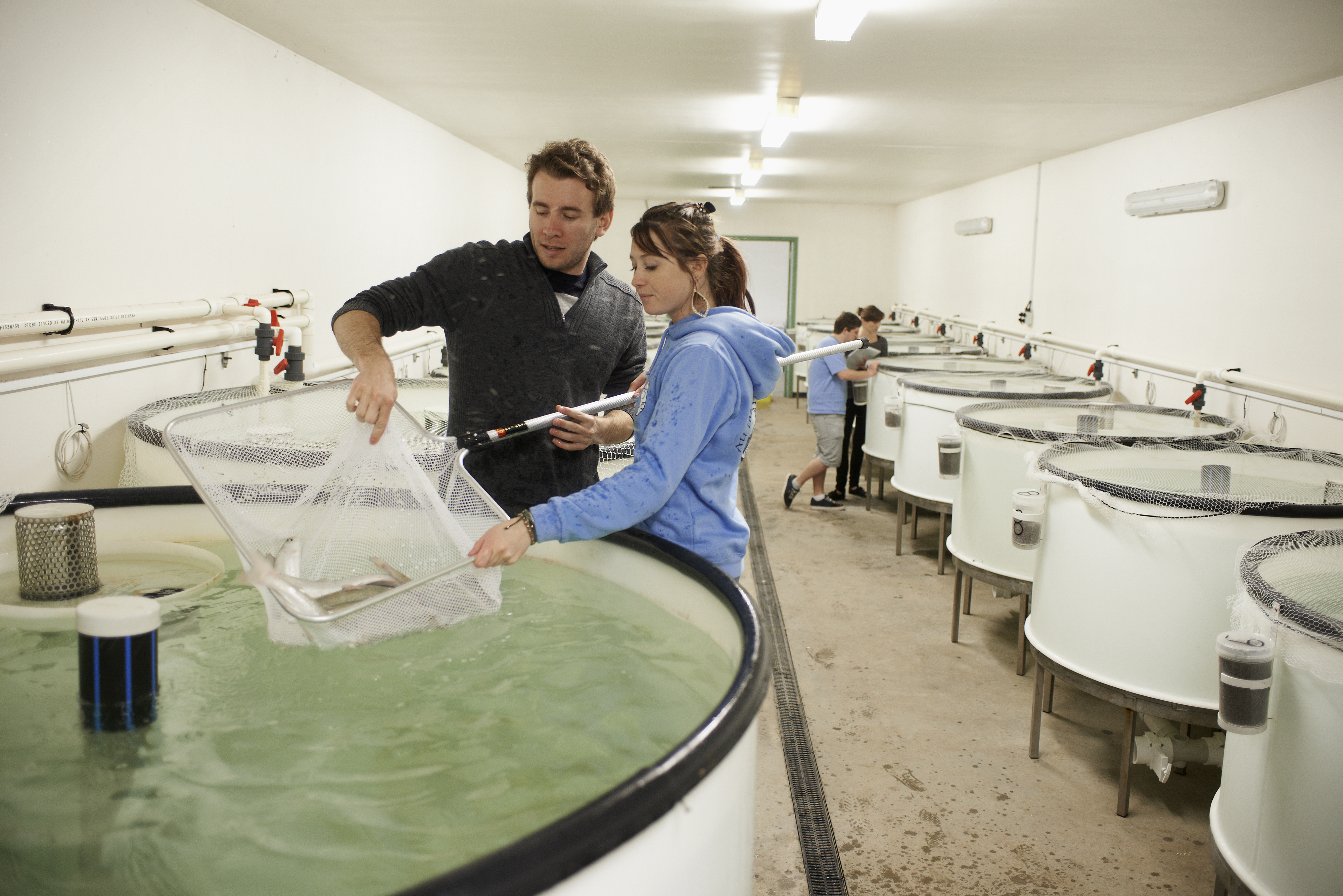Alfred Deakin Professor Colin Barrow, Deakin University's Chair in Biotechnology, will lead a multi-million-dollar research program in the new $270m Marine Bioproducts Cooperative Research Centre (MB-CRC).
Transforming fish skin into collagen for wound healing, food or cosmetics, or harvesting omega-3 from micro-algae for food supplements, fish food and pharmaceutical products are just some of the expected applications of a major Deakin research program that aims to seed new advanced manufacturing industries and help transform Australia's emerging marine bioproducts sector into a sustainable and globally competitive industry.
Alfred Deakin Professor Colin Barrow, from Deakin's Faculty of Science, Engineering and the Built Environment, will lead the Innovative Bioprocessing Technologies research program - one of three research programs in the Marine Bioproducts Cooperative Research Centre (MB-CRC) recently announced by the Minister for Industry, Science and Technology, the Hon. Christian Porter MP.
The MB-CRC is expected to lead to improved nutrition, novel aquaculture feed ingredients, new cosmetic ingredients and biomaterials for medical applications, and to help curb greenhouse gas emissions. It aims to fast-track the growth of Australia's next-generation marine bioindustry to meet the rapidly growing global demand for certified, safe, sustainable and traceable bioproducts.
Deakin's Deputy Vice-Chancellor Research, Alfred Deakin Professor Julie Owens, said the CRC's establishment was much welcomed and Professor Barrow's Innovative Bioprocessing Technologies research program aligned with industry sector needs and Deakin's strengths in bioprocessing, aquaculture and marine research.
"With up to potentially $50m+ available for Deakin-led bioprocessing program, the CRC will enhance our focus on building the advanced manufacturing capability of the region. We expect it could create over 500 jobs in Victoria, with a large proportion of those in Geelong, over the next 10 years," Professor Owens said.
"The industry-led research will also contribute to a circular economy and more sustainable future - equally important priorities for the University. Led by Professor Barrow, Australia's best minds will work together with industry to find effective and economical ways to use seaweed, algae and seafood industry by-products of enormous value that, until now, have gone to waste or been under-utilised."
Professor Barrow said the CRC's research program will drive innovation across marine biomass production, advanced manufacturing and product development, with complementary research programsin Sustainable Marine Resources and Australian Marine Bioproducts sitting alongside the Innovative Bioprocessing Technologies program under his leadership.
"There are tremendous organic bioprocessing opportunities in Australia," Professor Barrow said.
"The $1.3 billion aquaculture sector produces various by-products that can be converted to aquafeed (feed for farmed fish) or human nutritional products. This project will take underutilised marine materials, such as farmed seaweed and micro-algae, and produce new materials from Australian biodiversity. And the advanced manufacturing technology, once developed, can be applied to achieve similar benefits in other industries, such as agriculture, food and medicine."
The Deakin research program will capitalise on the University's Circular Economy Initiative, a high-tech facility at the Waurn Ponds Campus that brings researchers from different disciplines together to accelerate scalable pathways from the laboratory to commercially ready solutions for new circular materials and technologies. The Initiative is already being used to develop new applications and processes for food and other organic waste and agricultural by-product bioprocessing.
Deakin has a long history of leadership in aquaculture and green chemistry, working with companies such as Ridley (aquafeed products) and many other collaborators at the Queenscliff Marine Science Centre research station, Warrnambool and other campuses. This research also aligns with the new AquAFI Hub - Aquaculture and Advanced Feeds Innovation Hub - announced in April, which will identify breakthrough mechanisms to enhance industry growth.
The MB-CRC will receive $59 million over 10 years in Federal Government funding and $209.5 million (cash and in-kind) from participants. Led by Flinders University, it brings together 68 Australian and international research, industry and government partners.
Innovative Bioprocessing Technologies research program focus areas:
Biobusiness Toolbox
Software and analytics to enable efficient decisions to de-risk investments towards scale-up and biomanufacturing.
Biorefinery Configurations
Cost effective and efficient biomanufacturing configurations and equipment technology to enable circular biorefinery of multiple products from a single biomass.
Automated Biomanufacturing
Automation, AI and Industry 4.0 technology to enable reduced labour costs and improved productivity.
Modular Biomanufacturing
Modular factory that is cost competitive and can be utilised by multiple partners demonstrated at commercial scale.
Cooperative Business Models
Bioprocessing methodology that can be applied by the industry partners for productivity, efficiency and cost-effective production of bioproducts.
Learn more:
- Building a cleaner and greener future for South Australia's heavy industries (Govt media release)
- Ocean of opportunity to flow from $270m CRC (Flinders University News)







